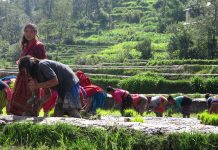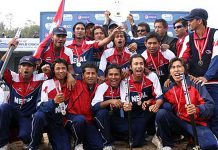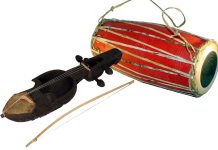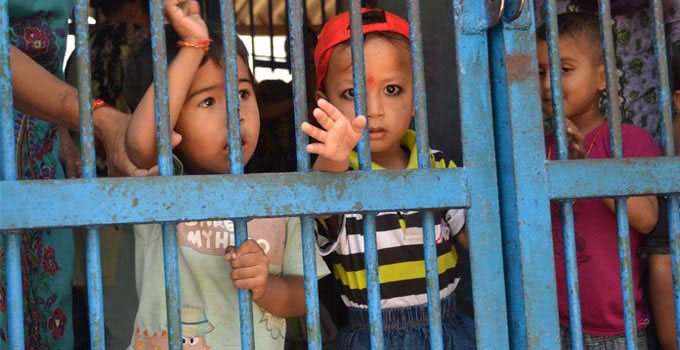Can you guess, “Which are the four districts which do not have prisons?” Well, the answer is four, namely; Bhaktpur, Bara, Sunsari and Dhanusha.
I assume we are well aware of the fact that South -Asian prisons are notoriously famous for inhumane treatment of their inmates.
The prisons are overcrowded, way above their capacity. The inmates are deprived from civil liberties and fundamental rights. The prisoner is restricted from formal education and various skilled-based training. The convicts are also banned from recreational facilities. A measure of counseling and opportunity to reintegrate into the outside society is absent.
The jails in Nepal are no exception. In my voluntary association with Prisoner’s Assistance Nepal (PAN) I could not believe what I learnt.
“There are many children and infants living inside the prison with their convicted parents, they do not have anyone in the outside society to look after them.” These innocent children live in the same harsh conditions as their parents. All the civil liberties and fundamental rights are deprived from these nation builders of tomorrow.
Let me remind you once again that these are innocent kids with no criminal history. It is also important to note that this is happening despite the fact that Article 11 of constitution of Kingdom of Nepal -1990 required that state make special provision for advancement of such children.
The civil society has to be careful that such provisions are also added in the new constitution of state of Nepal. In addition we should ensure that state builds muscles to implement these issues facing the prisoners.
Raise these issues with the prison authority and they will proudly tell you, “Yes we do provide Rs. 5.50 as allowance on daily basis. In addition we provide 250 Gms of rice to each child.”
This should give you the picture of the miseries facing these children. However not every child is lucky for such privilege. There are many who have had problems to register themselves with the concerned authority.
Nevertheless it is also important for us to understand the financial crunches of the state. As a responsible citizen we cannot always raise fingers at the state. It is also the responsibility of the civil society to contribute, revolutionize the Penal System of Nepal and replace the old Penal System.
It is high time we understood that “Prisoner themselves are the reflection of the society.”
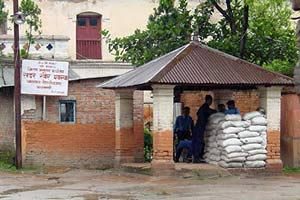 There are number of NGOs that have extended their help and support to the prisoners and their dependents. But only few have been able to bring a significant impact to the working environment.
There are number of NGOs that have extended their help and support to the prisoners and their dependents. But only few have been able to bring a significant impact to the working environment.
Prisoners Assistance Nepal (PAN) founded by a famous writer and a human right activist Parijat is one organization, which has been successful in meeting their objectives. PAN is the only organization, which specifically rescues children from prisons. They have rescued more than 121 children.
PAN provides residential care for children who would otherwise be in jail with the convicted parents. They also organize skills trainings for prisoners, advocacy on behalf of prisoners and their families, support for women released from prison and provide special support to the mentally ill convicts.
This NGO has been recognized for their determination and dedication by awards and media coverage both in national and international level. Recently successor of Parijat, Ms Indra Rana Magar has been awarded the Goddess Shakti for her work. The Boss Excellence has also recognized her as the 50 most influential women in Nepal. PAN has been lucky to receive a partial funding by the Ashoka Foundation -US.
Ms Rana has received this recognition for her sincere devotion to replace the old unjust penal system in Nepal with more pragmatic support system for the prisoners, their children and maintaining the links between the inmates and their families. Now she believes she can replace the concept of punishment centers with correctional center approach. However her hands have been tied due to financial crises.
In this hard times facing the organization on the behalf of PAN I would like to request humanitarian support from the civil society. Presently PAN has 100 children in their residential centers. The cost of living, education, medical facilities and various programs designed to provide opportunity for the child’s advancement and reintegration into the outside society would cost Rs. 1500 per month. This means Rs. 1800 per annum.
You could contribute in two ways on personal basis or through institutional support. If you want to help on a personal basis; you could raise funds like me. Doctors could organize free health camps; teachers can help in teaching, student can volunteer etc. You know the best how you can contribute.
I personally recommend the institutional approach, as this is a sustainable approach. An organization can contribute X amount of their corporate social responsibility (CSR) for Y number of years. If you do not have a CSR, it’s a right time to establish one.
You can benefit as your partnership with PAN can provide you wide media coverage. As I mentioned earlier they are the darlings of media house globally.
Above all you will be contributing your money to replace the conventional penal system with more practical support system for prisoners, their children and maintaining links between the inmates and family.
Ladies and gentlemen, let me repeat, “Prisoners themselves are reflection of the society.” It’s our responsibility to recognize this fact and join hands to address their issues.
– Anup Bhandari







